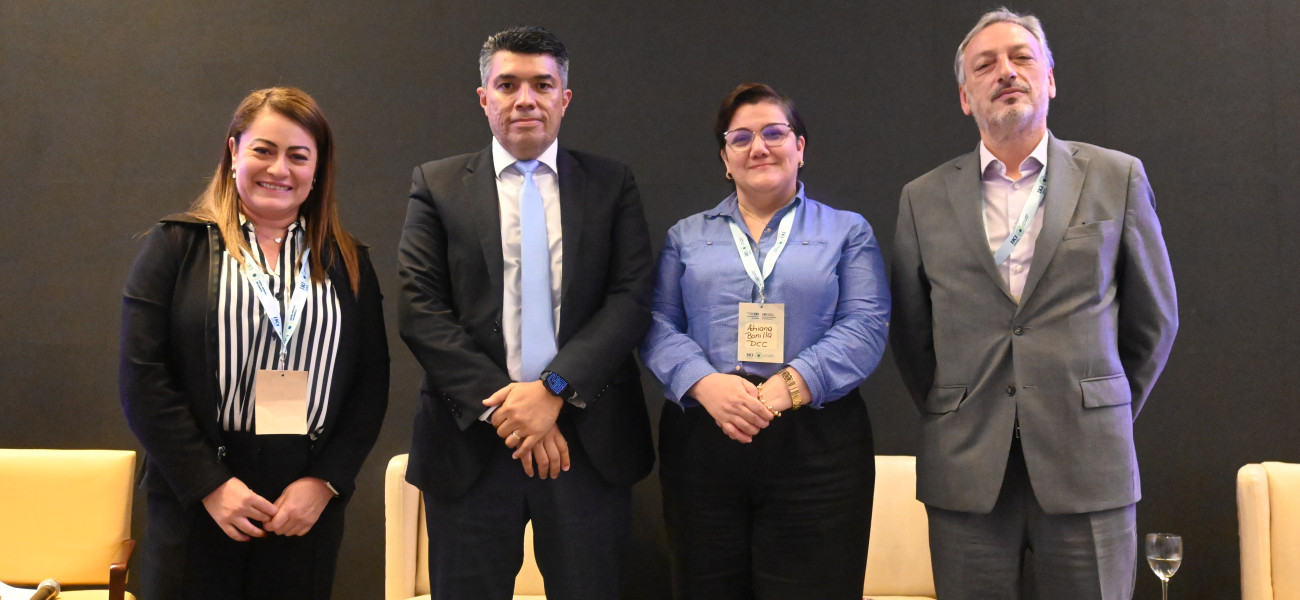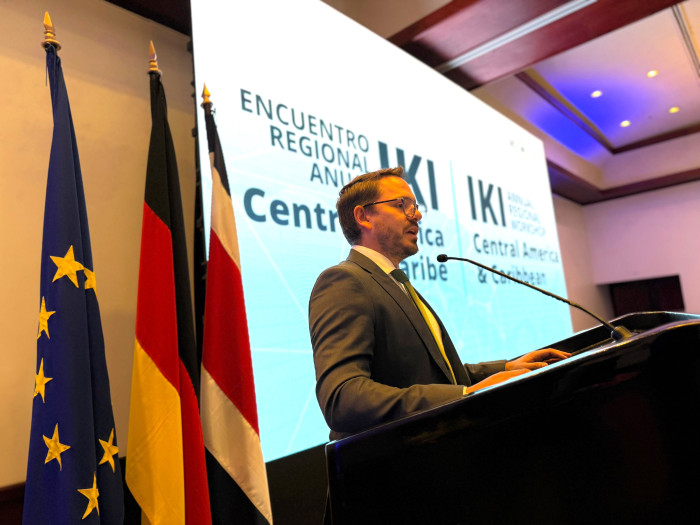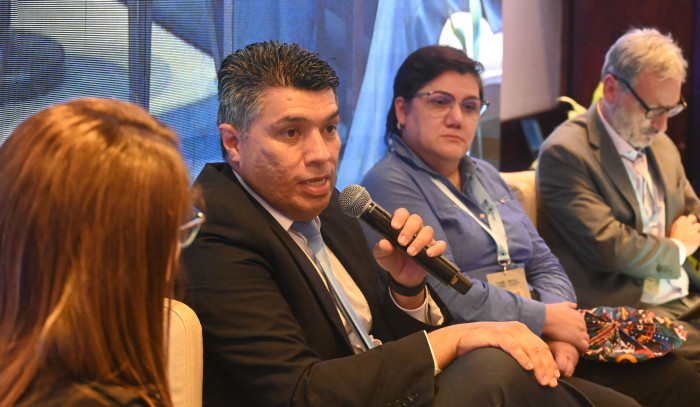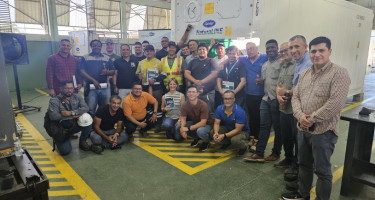GET: Transforming Public Finance for a Climate Future and the Circular Economy in Costa Rica
At a crucial moment of transformation following the pandemic that began in 2020, the global Green Economy Transformation (GET) 4.0 project, funded by Germany’s International Climate Initiative (IKI), became a key pathway to connect countries’ economic recovery efforts with a focus on climate action and the circular economy.

© Melisa Jerez Cerda / GIZ
Through its work in Costa Rica, the project committed to fostering an inclusive green economy by building partnerships with Germany and providing technical support to help design tools that allow the country to ensure environmental protection by strengthening its public finances – moving forward with a vision toward a more sustainable, just, and resilient future.
During the 5th IKI Central America and Caribbean Workshop, GET 4.0 organized a side event to present its work to a high-level audience, with participation from representatives of the public sector and cooperation agencies working in green finance and the decarbonization of the economy.
The event opened with remarks from Luis Antonio Molina, Acting Minister of Finance of Costa Rica, who emphasized the country’s progress on green finance.

© Melisa Jerez Cerda / GIZ
Sandra Spies, GET Global Project Director, also joined remotely from Germany to highlight the achievements and commitments made throughout the project’s implementation.
The international keynote speaker was Juan Pablo Jiménez from the Center for Economic Research (CINVE, from its acronym in Spanish) in Uruguay. He presented the key findings of the “Study to Analyze Options for Comprehensive Reform of Environmentally Harmful Tax Expenditures and Impact Analysis on the Agroindustrial Sector”, developed as part of the GET project activities.
He provided an in-depth explanation of the methodology used for both qualitative and quantitative evaluation of the impact of tax expenditures in Costa Rica and discussed how the proposed reforms could enhance coherence between fiscal instruments and environmental and climate policy.
To incorporate multiple perspectives, a panel discussion was held on tax expenditures, their environmental implications, and decarbonization. Panelists included Juan Carlos Brenes, Director General of Treasury at the Ministry of Finance; Adriana Bonilla, Director of Climate Change at the Ministry of Environment and Energy (MINAE, from its acronym in Spanish); and Juan Pablo Jiménez of CINVE.
The panel explored the importance of integrating an environmental and climate-focused perspective into tax expenditure analysis.
Two key institutions contributed to the discussion, providing a comprehensive perspective:
- Ministry of Finance: Emphasized the impact of tax expenditures on public finances, social equity, and the environment, highlighting the need to align these benefits with the country’s fiscal goals.
- MINAE: Stressed how reforming tax expenditures will be a key factor in accelerating the transition to a green and resilient economy, in line with Costa Rica’s climate commitments such as the Nationally Determined Contribution (NDC) and the National Decarbonization Plan.
The dialogue underscored both the urgency and the opportunity to align fiscal policy with the country’s environmental goals, promoting coherence and effectiveness in climate action.
The discussion led to the conclusion that the climate agenda is broad and that the effects of climate change must drive transformation in public management. It also reaffirmed that Costa Rica’s National Decarbonization Plan and its NDC must be aligned with the country’s fiscal policy.

© Melisa Jerez Cerda / GIZ
Elizabeth Venegas Mata, Component Director for the GET project in Costa Rica, emphasized that the technical support provided helped drive policy analysis in key areas such as green fiscal policy, sustainable finance, and inclusion – through coordinated dialogue among key actors involved in the process.
Without a doubt, the event was highly valuable, offering a crucial space for dialogue on sustainability and generating concrete actions and practical tools to support Costa Rica in its fight against climate change and its path toward economic recovery.
The GET 4.0 project also contributed to strengthening the National Circular Economy Strategy, coordinated by the Sectoral Planning Secretariat for Environment and Energy (SEPLASA – MINAE, from their acronyms in Spanish). Notable outcomes in this area of the project include:
- The development of a catalog of economic instruments to promote the circular economy.
- The strengthening of local capacities in 79 municipalities in circular economy practices, through joint work with the Institute for Municipal Promotion and Advisory Services (IFAM, from its acronym in Spanish).
- The design of an MRV (Monitoring, Reporting, and Verification) system to track the implementation of the National Circular Economy Strategy.
These efforts contribute directly to strengthening climate governance and advancing a just and sustainable transition.
Más información:
Recording of the side event- Country: Costa Rica
- Project:
- Contact:
Elizabeth Venegas Mata
Karen Araya Varela


